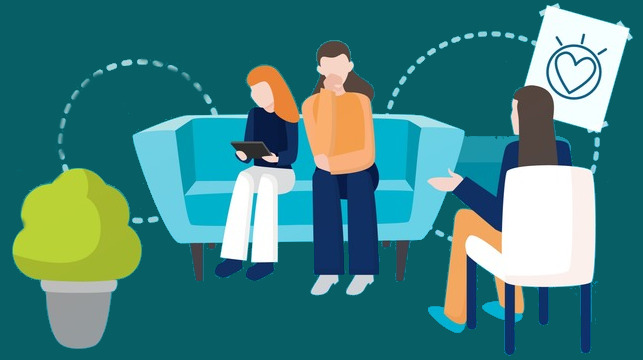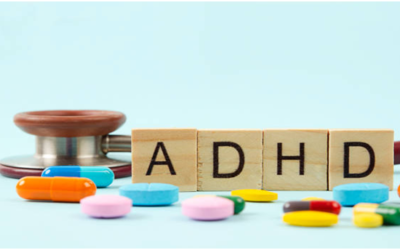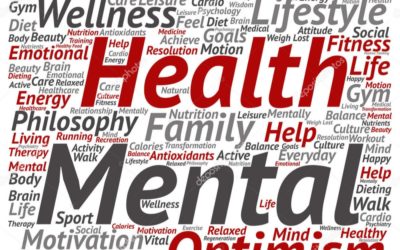ADHD
What is ADHD (Attention Deficit Hyperactivity Disorder)?
ADHD abbreviates as attention deficit hyperactivity disorder. It is a chronic condition including attention difficulty, hyperactivity and impulsiveness.
ADHD often begins in childhood and can persist into adulthood. It may contribute to low self-esteem, troubled relationships. Some children with ADHD find difficulties in concentrating on schoolwork or other tasks and may daydream frequently. Others become disruptive, defiant, or have trouble getting along with parents, peers, or teachers. Children who struggle with hyperactivity and impulsivity, in particular, often have behavioural challenges that can be difficult for adults to manage. Managing school, work and household tasks simultaneously can be a challenging thing for a child having ADHD. Fortunately, they can learn coping skills to work around struggles and harness their talents as many successful individuals with ADHD have already done.
Symptoms include limited attention and hyperactivity. Treatments include medication and talk therapy. ‘ADHD therapists near me’ or ‘ADHD psychologist near me’ provides the best ADHD treatment in the form of talk therapy.
Causes of ADHD:
Despite multiple studies and experiments, researchers or scientists have not succeeded yet in finding the exact cause of ADHD. It’s not 100% sure, but genes play a major role in developing ADHD in a child. Poor parenting is not a direct cause for ADHD, but parenting styles, parenting strategies can have an effect on children’s self-regulating abilities. Children who get exposed to inconsistent discipline, or who suffer from neglect, may find it more challenging to rein in their impulses or direct their attention later on. Additionally, poor nutrition or substance use during pregnancy may play a role in a child developing ADHD.
The other environmental factors which may lead to the development of ADHD are:
- Exposure to toxins like pesticides or lead
- Parental smoking or alcohol consumption
- Premature birth or low birth weight
- Brain injury
Scientists continue to study the exact relationship of ADHD to environmental factors, but point out that there is no single cause that explains all cases of ADHD and that many factors may play a part. Earlier, scientists believed that maternal stress and smoking or consuming drugs during pregnancy raises the chance of developing ADHD in a child, but current shreds of evidences are nowhere near to it. However, further research is still a requirement for finding the relation between developing ADHD and environmental factors.
The following factors are not known causes but can make ADHD symptoms worse for some children:
- Watching too much television
- Eating sugar
- Family stress like poverty, family conflict, etc
- Traumatic experiences
ADHD symptoms, themselves, may contribute to family conflict. Even though family stress does not cause ADHD, it can change the way the ADHD presents itself and result in additional problems such as antisocial behaviour.
Diagnosis:
In the past, terms like ADD and ADHD were used. But, ADD is no longer an official diagnosis. Currently, there are three presentations of Attention Deficit Hyperactivity Disorder (ADHD). These are:
- Predominantly inattentive presentation
- Predominantly hyperactive-impulsive presentation
- Combined presentation
Most children receive ADHD during elementary school. However, some people may not receive a diagnosis until adolescence or even adulthood. There is no specific diagnostic test that can identify ADHD. ‘Doctors for ADHD near me’ conduct examinations to rule out other potential causes, such as hearing or vision problems. At some point, the features of ADHD may relate to symptoms of anxiety, depression, learning disabilities, and sleep disorders.
A psychologist for ADHD child asks questions to establish behavioural therapy and obtain the best and effective methods of diagnosis. These questions are usually for both the persons, who are suspected of ADHD and family members. To qualify for a diagnosis of ADHD, a child needs to demonstrate six of the criteria to an extent greater than medical professionals deem normal for their age over a period of six months and at a level of severity that directly impacts social and academic function.
ADHD in adults:
ADHD is not only a childhood problem; adults can be a victim of it as well. Life can be a balancing act for any adult. But if you find yourself constantly late, disorganized, forgetful, inattentive and overwhelmed by your responsibilities, you may have Attention Deficit Hyperactivity Disorder (ADHD).
Every adult who has ADHD had it as a child. Some may have been diagnosed and known it. But some may have not been diagnosed when they were young and only find out later in life. Adult ADHD seems to affect men and women equally.
Symptoms of ADHD in adults:
- Not following the directions
- Forgetting information, days that matter to your personal life such as events, birthdays, etc.
- Lack of concentration
- Unorganised tasks
- Unable to finish work at time
- Getting late for almost every single thing
- Inattentive
These things lead you to big trouble in many parts of your life such as a workplace, family meetings or get-togethers, trips, etc
Types of challenges or difficulties ADHD adults face:
- Anxiety
- Chronic boredom
- Chronic lateness and forgetfulness
- Depression
- Trouble concentrating while reading
- Trouble controlling anger
- Problems or issues at work
- Impulsiveness
- Low tolerance for frustration
- Low self-esteem
- Mood fluctuations
- Unorganised skills
- Procrastination
- Relationship problems
- Substance abuse or addiction
- Low motivation
These may affect you a lot or did not bother you at all. No two people with ADHD are alike. If you are facing ADHD still you can find excitement and happiness in the work you are doing, but some people find a lack of focus and difficulties under any circumstances.
Treatment for ADHD:
Medication is the most common way of treating ADHD. However, it is not the only way. Medications, Therapies, Lifestyle are the parts of treatment for ADHD.
Medication:
The medication treatment is strictly conducted under ‘psychiatrist ADHD near me’ or ‘dr for ADHD near me’. Your ‘psychologist specializing in ADHD near me’ generally prescribes two forms of medications: stimulants and non-stimulants. Stimulants reduce hyperactivity and impulsivity and increase attention. Stimulants are often quite effective but do come with some risks.
Therapy:
Cognitive Behavioural Therapy (CBT) has found the most effective therapy for treating ADHD both in adults as well as children. Psychologist for ADHD child and adults provides CBT skills that can help change unproductive thinking patterns and identify behavioural changes which may improve functioning.
Lifestyle changes:
There are a lot of improvements you can make on your own in order to minimize the adverse effects of ADHD in your life. Organising the tasks, making a checklist, proper planning and implementation of tasks or work, finishing target or given work in time, consumption of good healthier foods, exercising, etc are some of the positive changes you should adopt to reduce the intensity of ADHD.
Where to go for ADHD diagnosis?
You can find an ADHD therapist in our hassle-free Search Licensed Psychologist directory. Enjoy the benefits of all licensed and trusted psychologists of all specifications or as per your needs.
Related Blogs
What is ADHD, and why does it happen?
What is ADHD? ADHD, or Attention Deficit Hyperactive Disorder is a neurodevelopmental disorder where the front part of your brain underperforms relative to the rest. This leads to things like an inability to filter external stimuli, poor working memory, and a general...
ADHD in Children
ADHD stands for attention deficit hyperactivity disorder, which used to be called ADD (attention deficit disorder). Children or adults can have ADHD, but symptoms must start before age 12. Children with ADHD may fidget or squirm, get up from their seats when they...
Nutritional psychiatry: What does it mean for you?
Think about it. Your brain is always "ON" means it has many things to think and worry about. It takes care of your thoughts and movements, your breathing and heartbeat, your senses — it works hard and continuous 24/7, even while you’re asleep. This means your...
ADHD and Its Symptoms
ADHD stands for attention deficit hyperactivity disorder. It is a medical condition. A person with ADHD has differences in brain development and brain activity that affect attention, the ability to sit still, and self-control. ADHD often starts in childhood and can...
What are you waiting for?
You can’t change the past, but by working together with a counselor, you will understand and resolve challenges in your life. Contact a counselor for relieving emotional distress and other cognitive health issues for a better tomorrow.











